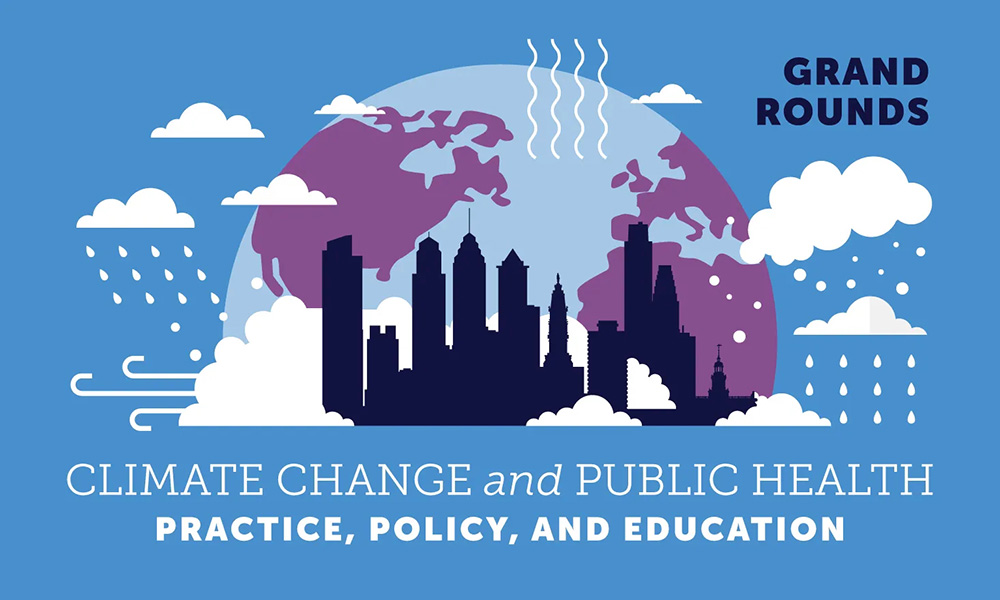Arcadia Professors Create Webinar on Climate Change and Public Health

The College of Physicians of Philadelphia will host a virtual educational event on Nov. 19, launching a webinar series that highlights best practices and strategies to safeguard communities against climate and weather-related health risks.
Dr. Reema Persad-Clem, assistant professor of Public Health and chair of the Public Health department, and Dr. Suzanne Redington, associate professor of Public Health, along with Fallon Maggio, Bucks County Department of Health’s public health preparedness coordinator, co-created a webinar, “Engaging Communities in Preparedness: Weathering Extreme Events in our Changing Climate” that will be highlighted during the event.
Their webinar includes examples of local infrastructure that actively engage communities in preparedness efforts and response to extreme weather events, including a personal perspective shared by Amy Dailey, a local community volunteer.
“Events such as heat, cold, and storm activity not only pose a direct threat to human health, but extreme weather also exacerbates existing health conditions, like cardiovascular and respiratory diseases,” said Persad-Clem. “Our webinar examines how to build climate resilience through public health infrastructure, increasing access to centers for refuge, and creating strong communities.”
Arcadia’s Master of Public Health program, along with several other Philadelphia-area institutions, was invited by the College of Physicians of Philadelphia to support the development of resources that inform our understanding of how climate change impacts our health. Each participating institution developed a webinar related to a specific aspect of climate change and health.
Persad-Clem, Redington, and Maggio will engage attendees in discussions about the role of public health in local-level responses to climate change.
“Attendees will get the chance to learn about strategies for integrating climate and weather-related health risks into public health education, workforce development, and on-the-ground practice,” said Persad-Clem.
More information and a registration link can be found at: https://collegeofphysicians.org/events/public-health-grand-rounds-climate-change-and-public-health-practice-policy-and-education.

